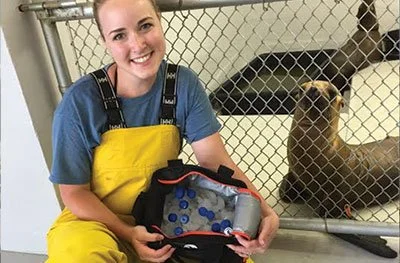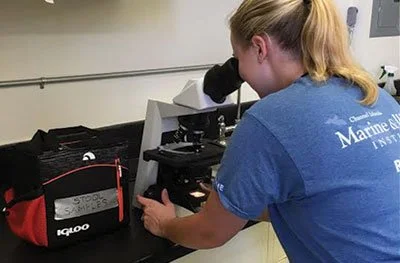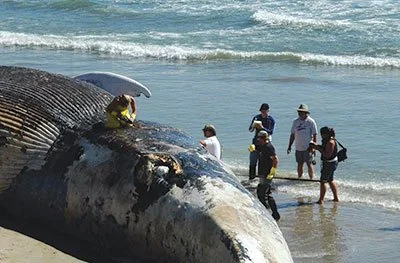
Research
Channel Islands Marine and Wildlife Institute (CIMWI) is committed to conducting research on the causes of illness and injury to marine mammals. In efforts to fulfill this mission, CIMWI:
Gathers scientific data from both living and deceased marine mammals
Performs clinical research with respect to treating and rehabilitating marine mammals and improving current techniques and established parameters
Assesses trends in the health of marine mammal populations by correlating health with physical, chemical and biological variables in the environment
Communicates and collaborates with other marine wildlife professionals with regard to advancing all aspects of science
Antibiotic Resistance in Fecal Microbiota of Rehabilitated California Sea Lions – Breit and Rogers, California Lutheran University:
The use of antibiotics during rehabilitation of California sea lions raises the question of antibiotic resistance in the animal’s gut microbiota. Fecal samples from California sea lions were collected before, during and at release/mortality to study antibiotic resistance. While the sea lions were never treated with cephalosporins, they demonstrated antibiotic resistance to third generation cephalosporins. This indicates resistance to this class of antibiotics exists in wild populations of California sea lions.
Assessing Metal Pollution in the Eastern Pacific Ocean with Marine Mammals - Wise Laboratory of Environmental and Genetic Toxicology
Ocean pollution is a pressing global concern and poses a significant threat to the health and well-being of our oceans, marine life and ultimately people. While the concept that our oceans are polluted may seem obvious, how pollution affects marine life is understudied and poorly understood. CIMWI is working with the Wise Laboratory of Environmental and Genetic Toxicology at the University of Louisville to study the level of toxic metals in humpback whales and blue whales in the Santa Barbara Channel as well as California sea lions in rehabilitation with CIMWI. We will be assessing these parameters over time and publishing our data in scientific literature to further risk assessment and risk management efforts on marine mammals and marine resources.




